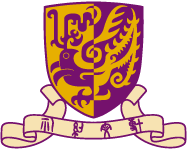Geography is a broad and integrated subject with many areas of specialization dealing with the physical environment and human society. Our curriculum maintains a good balance between the physical and human dimensions of geography and meanwhile emphasises on the geoinformation techniques mainly including GIS and remote sensing, as well as the topics of resource management and smart sustainable cities. As shown in the list of courses, our curriculum is divided into four concentration areas:
 Urban and Regional Development
Urban and Regional Development
Urban and regional development is a dynamic and uneven process. Within this concentration, there is a wide variety of courses addressing the dynamics of urban change, regional development and global economy, with special emphasis on the sustainable development in Guangdong-Hong Kong-Macao Greater Bay Area, China and Pacific-Asia. Through lectures, tutorials, organized field trips, as well as the use of both local, regional and international case studies, students examine the spatial organization of cities and regions, the world spatial economy, behaviours of individual agents, and collective choice in the form of urban physical planning. Courses within this concentration also emphasize the understanding of the effects of urban development, such as transport, housing, welfare and the location and relocation of economic activities in space. At regional scale, students are also exposed to different forces that contribute to development, including the globalization, the cultural dimension, population change and regional development policies.
 Physical Environment and Resource Management
Physical Environment and Resource Management
This concentration begins with a balanced introduction to hydrology, geomorphology, pedology, biogeography and climatology. Students are then exposed to more advanced study of environmental issues and the management of natural resources. Materials are generally taught in a system context and emphasis is placed on the integration of these various fields. Most courses also develop workshop, laboratory and/or fieldwork skills.
This concentration area enriches students with knowledge on various energy types and the methods, advantages and disadvantages of their utilization. Students will be exposed to different energy and environmental policies to understand their application and design. Furthermore, a particular focus of the training will be on the skills of critical thinking and in-depth analysis to employ the knowledge for finding solutions to real-world problems of resource and the environment.
 Geo-spatial Data Science
Geo-spatial Data Science
This concentration area provides students with a wide range of geographical techniques to process and analyze geo-spatial data. These basic geographical techniques are essential for a better understanding of all other subjects in human, physical and regional geography. Certainly, geographical techniques per se are interesting subjects for study.
For students interested in advanced techniques and their application in geographical studies, they can specialize in geographic information systems (GIS) and remote sensing. Most courses include interesting laboratory work offering hands-on experience to students. The Department is well equipped with advanced GIS and digital image processing systems for study and research.
 Smart Sustainable Cities
Smart Sustainable Cities
This area of concentration is jointly offered by the Department of Geography and Resource Management and the Urban Studies Programme. The goal of this concentration is to equip students with experience, competency and entrepreneurial spirit in leveraging the digital revolution to contribute to the transdisciplinary efforts of building future cities that are not only smart but also sustainable, humane, convivial and ecological.
Accelerated globalisation and urbanisation have posed many challenges to cities, including resource depletion, climate change, global warming and socio-economic polarisation. The emerging digital revolution if harnessed smartly, can contribute to a better understanding, analysis and resolution of such issues. Smart planning, smart transport and smart grid can lead to more efficient allocation of resources and reduced energy consumption and greenhouse emissions, thus ameliorating climate change and global warming. Big data analytics, crowd-sourcing, digital engagement, sharing of information and views could be essential platforms to promote the development of a more inclusive society, polity and economy. The ambitious programmes of building smart cities in Hong Kong, mainland China and many other countries involve new ethical and moral issues, giving rise to an urgent need of nurturing talents who can employ creatively cutting-edge technologies and design thinking to plan, develop and govern our cities.
Students taking this concentration will learn about theories, concepts, technologies and best practices of smart sustainable city development. Courses in the concentration will expose students to theoretical knowledge by academics and practical knowledge by practising professionals, hands-on experience and student-centered learning activities such as group projects seeking technology-driven and creative solutions of building smart sustainable cities.

